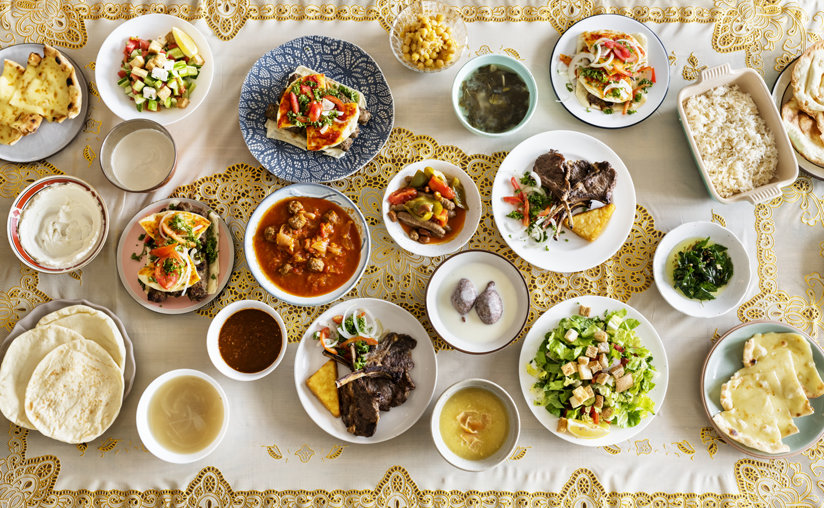
-
HOME
-
WHAT IS STANDOur Mission Our Values Our Help Contact
-
WHAT WE FIGHT FORReligious Freedom Religious Literacy Equality & Human Rights Inclusion & Respect Free Speech Responsible Journalism Corporate Accountability
-
RESOURCESExpert Studies Landmark Decisions White Papers FAQs David Miscavige Religious Freedom Resource Center Freedom of Religion & Human Rights Topic Index Priest-Penitent Privilege Islamophobia
-
HATE MONITORBiased Media Propagandists Hatemongers False Experts Hate Monitor Blog
-
NEWSROOMNews Media Watch Videos Blog
-
TAKE ACTIONCombat Hate & Discrimination Champion Freedom of Religion Demand Accountability
Remembering Kissir and Tsemik at Hazeem’s House, This Ramadan
I grew up in 1960s France of American parents.
I was baptized in Paris at the American Cathedral, which makes me Episcopalian, but my grandmother was Catholic and her grandfather was Jewish.
Then the tangled roots of religious belief sprouted new stems when my mother discovered Scientology in 1968.

In the early 70s, we moved to Denmark. I went to Bjorn’s International School in Copenhagen, which catered to expats and embassy kids. At the time it was housed in an old mansion in the suburbs, and I have fond memories of picking crabapples from the trees with my best friend Boon, who was from Singapore. (I am guessing his family were Buddhists, though I don’t know.) I had another friend Kofi from Ghana, a Christian, and then Avi, from Israel (Jewish), and Hazeem from Pakistan, a Muslim. I still remember going to Hazeem’s house where his mother cooked us delicious traditional kissir—savory buckwheat pancakes topped with a cucumber yogurt chutney called tsemik.
I put these religious labels on Boon, Kofi, and Avi now, but back then, the subject never came up. They were just my friends. One could say I was “embracing cultural diversity,” but for me as a kid it was just a reality that everyone was different, and I never thought another thought about it.
It’s in these moments one learns to not take for granted what one has.
I suppose you’re still the same person as a grownup as you were when you were a child, and maybe that’s why I am baffled as an adult when confronted with intolerance and bigotry.
All of which brings me to Ramadan. It’s the name of a month in the Islamic calendar which roughly translates to April. This year, Ramadan runs from April 2 to May 1. But Ramadan is also the name of a religious holiday—a holiday designed to foster empathy. Empathy because Muslims celebrating Ramadan are not allowed to eat or drink from sunup to sundown for the whole month in order to understand what it is like to be poor and starving. It is also to remind the faithful to meditate on religious texts and focus on the spiritual. It’s much like Lent for Christians, Yom Kippur for Jews, or the Vasanta Navaratri for Hindus (fasting seems to have been part of religious practice since the beginning of time).
But with the bitterness of self-denial comes the sweetness of the evening feast—or iftar—in which families gather round the table and enjoy a hearty meal with laughter and friendship. It’s in these moments one learns to not take for granted what one has.
Which is my cue for not taking for granted religious beliefs. It’s hard sometimes to understand other people’s religions, especially their religious practices. People wearing unfamiliar clothing, celebrating different holidays than we do, abiding by different rules, eating different foods—wariness can be natural. But if you look up “bigotry” in Webster’s, you get this: Bigotry: obstinate or intolerant devotion to one’s own opinions and prejudices. And the first word of that definition, “obstinate,” bears further clarification, also courtesy of Webster’s: Obstinate: stubbornly adhering to an opinion, purpose, or course in spite of reason, arguments, or persuasion. And there is the difference: bigotry is inflexibility.
We have to be aware of and overcome our own confirmation bias and leave our comfort zones to understand that we don’t have to believe someone else’s religion to respect their need to believe it. Respect the Religious Beliefs of Others is a precept I work hard to live by.
But not so hard, really, when you’re talking about a delicious evening feast of Eastern food, which brings me back to Hazeem and his family. Wherever they are now, enjoying that evening feast which most likely includes kissir and tsemik, I wish them “Ramadan Kareem!”









